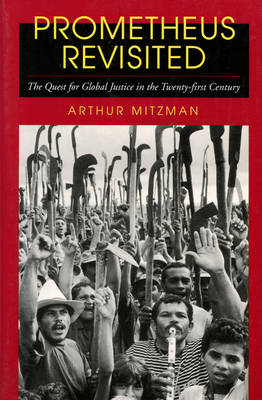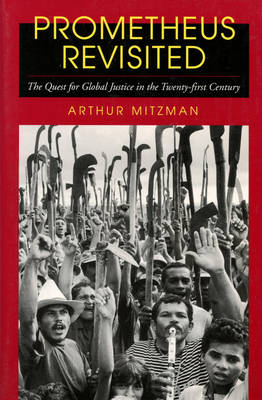
- Retrait gratuit dans votre magasin Club
- 7.000.000 titres dans notre catalogue
- Payer en toute sécurité
- Toujours un magasin près de chez vous
- Retrait gratuit dans votre magasin Club
- 7.000.0000 titres dans notre catalogue
- Payer en toute sécurité
- Toujours un magasin près de chez vous
40,45 €
+ 80 points
Description
Understood as a metaphor for the human mastery of nature, the myth of Prometheus has long served as a symbol of the modern world. Industrialization, individualism, the triumph of instrumental rationality and technological prowess in every aspect of life, all can be seen as expressions of the Promethean ethic. Yet as Arthur Mitzman demonstrates in this thought-provoking book, there is an alternative conception of Promethean modernity at odds with the reigning view. Elaborated in the writings of some European romantics, particularly the English poet Shelley, it emphasizes creativity over productivity, and a harmonious union with nature rather than its technocratic conquest. According to Mitzman, the ideologies of nationalism, socialism, and consumer capitalism all purported to be agencies of liberation and social justice. But they were traps. The mentalities of growth and power they encouraged and their institutional embodiments suffocated the original impulses of Promethean creativity while combining to construct the double wall of ecological unsustainability and increasing social inequality that threatens the very existence of humankind. Although the forces of globalization and neoliberalism dominate contemporary society and may seem irreversible, Mitzman believes in the possibility of a different kind of world. Integrating the insights of critical theory, intellectual history, and psychoanalysis, he offers a reasoned plea for a radical new vision of the future, one grounded in a politics of genuinely self-governing communities, a culture of liberated creativity, and an economics committed to the transcendence of scarcity and insecurity.
Spécifications
Parties prenantes
- Auteur(s) :
- Editeur:
Contenu
- Nombre de pages :
- 344
- Langue:
- Anglais
- Collection :
Caractéristiques
- EAN:
- 9781558493902
- Date de parution :
- 30-05-03
- Format:
- Livre broché
- Format numérique:
- Trade paperback (VS)
- Dimensions :
- 162 mm x 234 mm
- Poids :
- 535 g

Les avis
Nous publions uniquement les avis qui respectent les conditions requises. Consultez nos conditions pour les avis.






